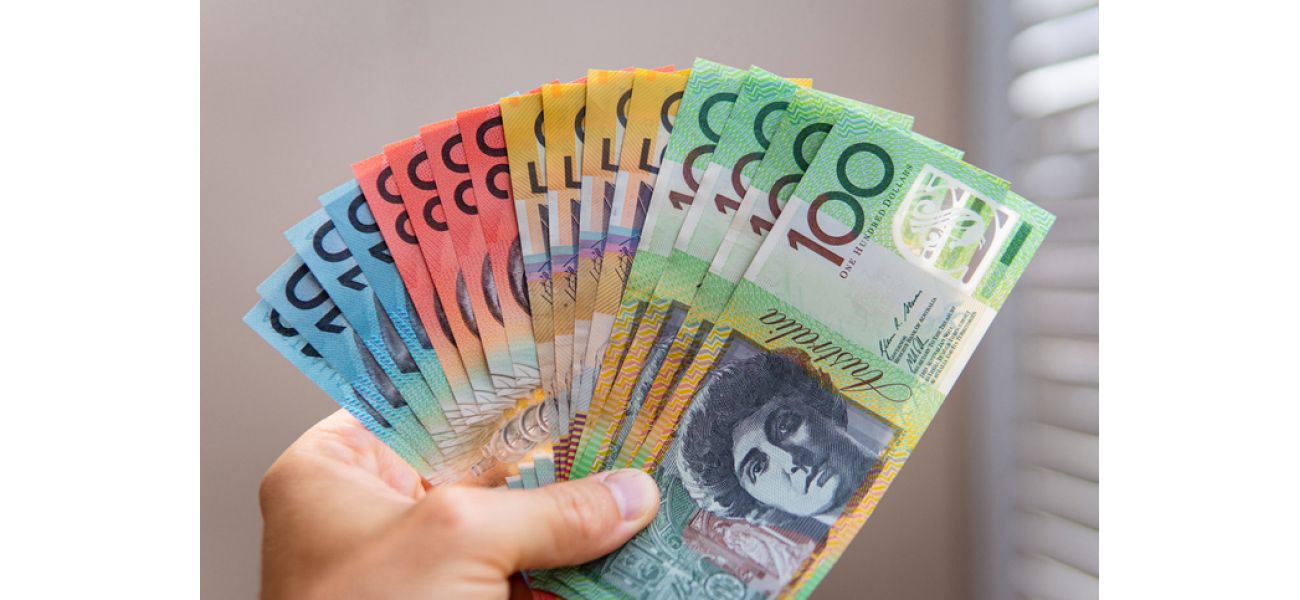Cash advocate cautions against proposal to prohibit additional fees for debit card use.
The government's proposal to ban debit card fees is criticized by a supporter of cash, who believes it will disadvantage those who prefer to use physical currency.
October 14th 2024.

According to a recent debate, a strong supporter of cash payments has expressed concerns about a proposed government policy to prohibit extra charges for debit card transactions. This would significantly affect individuals who prefer cash as their preferred payment method for purchasing goods and services. Industry estimates suggest that Australian shoppers collectively pay around $1.5 billion annually in debit and credit card surcharges.
Reports from the Australian Financial Review reveal that the Albanese Government is set to present their plans today, which includes banning debit card surcharges and allocating more funds to the competition watchdog to address businesses that impose excessive fees. However, credit card surcharges will not be included in this move. The Reserve Bank of Australia will also launch a review on payment costs for retailers.
If everything goes as planned, the ban could potentially take effect starting January 2026, following consultations with the RBA. Treasurer Jim Chalmers stated, "We shouldn't penalize consumers for using cards or digital payments, and small businesses shouldn't have to pay exorbitant fees just to receive payment." However, Jason Bryce, a pro-cash advocate and founder of the group Cash Welcome, believes that everyone will suffer if the cost of using debit cards is transferred to retail prices.
Bryce explained, "Prohibiting card surcharges could potentially result in additional hidden fees and charges for all of us." He also added, "This proposed ban will not eliminate fees for debit card transactions, but rather hide them from the consumer. Cash must remain widely accessible and accepted to maintain competitive pressure on fees at the point of sale. Cash users should not be burdened with the costs of premium credit card users or any other group."
But where exactly do these card fees paid by shoppers go? While large businesses like supermarkets usually absorb the cost of card processing fees and recoup it through their prices, smaller establishments, such as cafes and restaurants, often charge their customers with surcharges. The usual surcharge for Visa and Mastercard debit cards ranges from 0.5% to 1%, while it's 1% to 1.5% for Visa and Mastercard credit cards. These charges are meant to cover payment processing costs, which businesses can pass on to their customers. However, they are not allowed to charge more than the actual cost.
The revenue generated from payment processing fees is divided among the banks that issue cards to consumers, the network providers such as Visa, Mastercard, and Eftpos, and the banks that provide the physical terminal to the retailer. Some retailers have been accused of pocketing more than the actual processing fees, which is why the federal government plans to allocate an additional $2.1 million to the Australian Competition and Consumer Commission to curb excessive surcharges.
Reports from the Australian Financial Review reveal that the Albanese Government is set to present their plans today, which includes banning debit card surcharges and allocating more funds to the competition watchdog to address businesses that impose excessive fees. However, credit card surcharges will not be included in this move. The Reserve Bank of Australia will also launch a review on payment costs for retailers.
If everything goes as planned, the ban could potentially take effect starting January 2026, following consultations with the RBA. Treasurer Jim Chalmers stated, "We shouldn't penalize consumers for using cards or digital payments, and small businesses shouldn't have to pay exorbitant fees just to receive payment." However, Jason Bryce, a pro-cash advocate and founder of the group Cash Welcome, believes that everyone will suffer if the cost of using debit cards is transferred to retail prices.
Bryce explained, "Prohibiting card surcharges could potentially result in additional hidden fees and charges for all of us." He also added, "This proposed ban will not eliminate fees for debit card transactions, but rather hide them from the consumer. Cash must remain widely accessible and accepted to maintain competitive pressure on fees at the point of sale. Cash users should not be burdened with the costs of premium credit card users or any other group."
But where exactly do these card fees paid by shoppers go? While large businesses like supermarkets usually absorb the cost of card processing fees and recoup it through their prices, smaller establishments, such as cafes and restaurants, often charge their customers with surcharges. The usual surcharge for Visa and Mastercard debit cards ranges from 0.5% to 1%, while it's 1% to 1.5% for Visa and Mastercard credit cards. These charges are meant to cover payment processing costs, which businesses can pass on to their customers. However, they are not allowed to charge more than the actual cost.
The revenue generated from payment processing fees is divided among the banks that issue cards to consumers, the network providers such as Visa, Mastercard, and Eftpos, and the banks that provide the physical terminal to the retailer. Some retailers have been accused of pocketing more than the actual processing fees, which is why the federal government plans to allocate an additional $2.1 million to the Australian Competition and Consumer Commission to curb excessive surcharges.
[This article has been trending online recently and has been generated with AI. Your feed is customized.]
[Generative AI is experimental.]
0
0
Submit Comment





